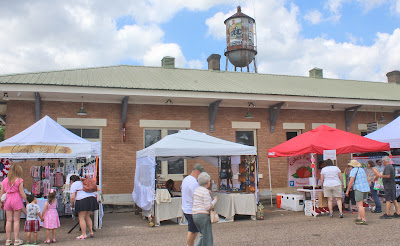In 1902 the widespread reputation of Covington and Abita Springs as being healthy places to live prompted local developers to propose the building of an entirely new town southeast of Covington, this city to be billed nationwide as a major health resort...
Click on the images to make them larger and more readable.
A number of log cabins and other cottages were to be built. That new town was called "St. Tammany." The train track from Florenville to Abita Springs ran just north of it.
The development was to include a first class restaurant, flower gardens, vegetable gardens, and a dairy.
Six hundred and fifty people took the excursion train for teachers from New Orleans
Flowing water wells and rice growing were in the plans.
New Train Depot Built for New Community
Maps
A 1935 topographical map showing the "St. Tammany" community north of Lacombe, just south of the road that goes between Abita Springs and Hickory/Pearl River
The St. Tammany community will soon become the southern end of the four lane highway between Bogalusa and Interstate 12. A swath of trees on its path has already been cleared at its junction where it merges with Hwy. 434.
Link of interest:


















































